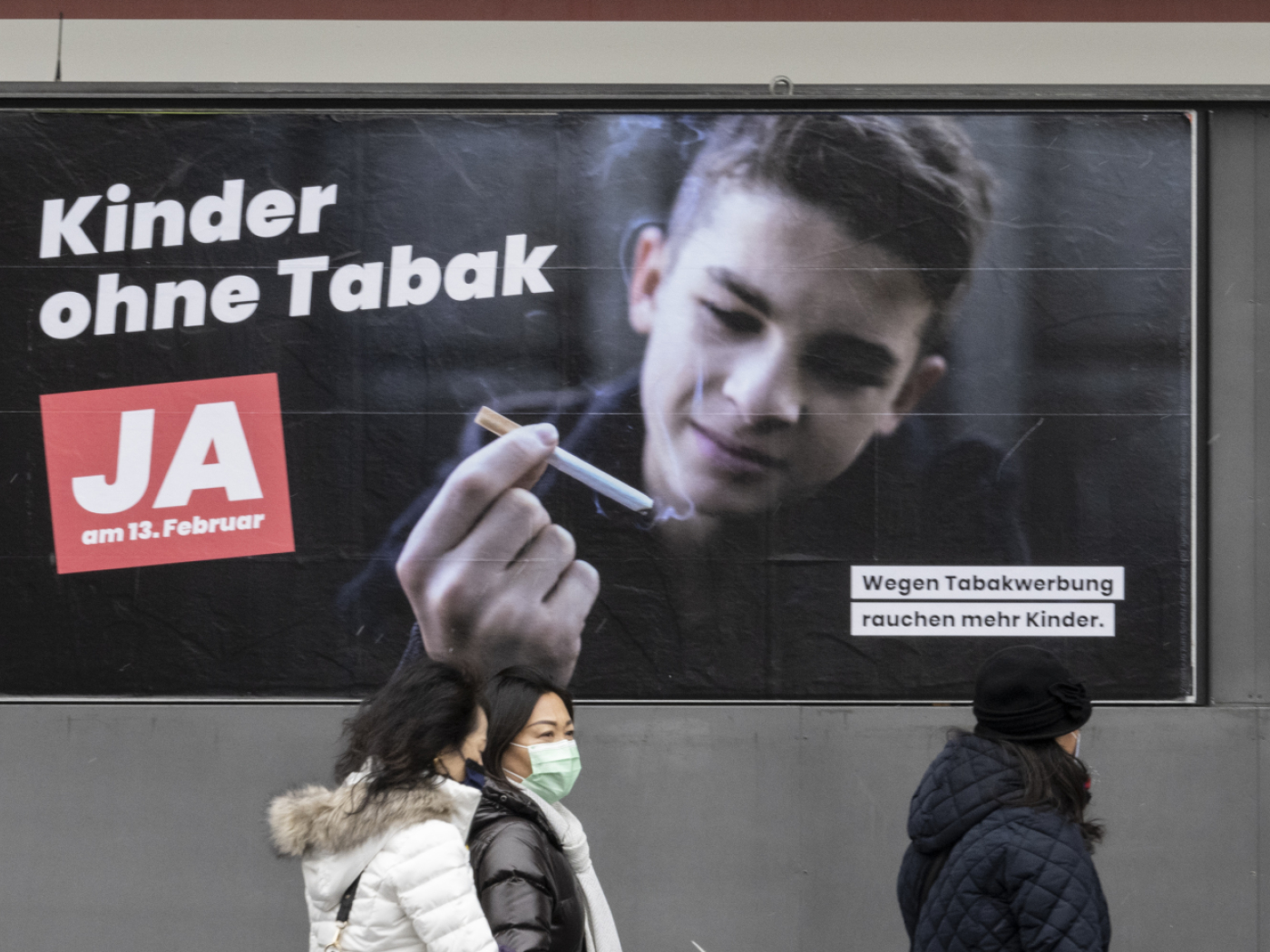
Council of States insists on exceptions for cigarette advert ban

The Swiss Senate is insisting on exceptions to nationwide restrictions on tobacco advertising, which will come into force following a nationwide vote on the issue.
+ Get the most important news from Switzerland in your inbox
Both chambers of parliament are debating how to implement the successful popular initiative “Yes to the protection of children against tobacco advertising” that was approved by voters in 2022.
+ Swiss voters back tobacco advert restrictions
With the revision of the law, the Federal Council wants to ensure that advertising for tobacco products and e-cigarettes no longer reaches children and young people, as required by constitutional
On Monday, the Senate clearly approved the bill by 28 votes to 12 with four abstentions. However, lawmakers stopped short of a comprehensive ban on tobacco advertising by maintaining exceptional provisions in the law.
+ Switzerland: the land of the tobacco industry
As in autumn 2023, the small chamber voted in favor of enshrining exceptions for mobile sales staff in publicly accessible places in the law. In addition, tobacco advertising in publicly accessible places and the sponsorship of events should remain permitted, provided that the advertising on site is neither accessible nor visible to minors.
The Senate only tightened up the wording of an exemption clause during the second discussion of the matter. However, it rejected minority motions to follow the national government and waive the exceptions, with one exception.

More
As the risk of addiction grows for young people, are more bans needed?
The ball is now back in the House of Representatives’ court. When the matter was first discussed in February, it rejected the bill in the overall vote. This was tantamount to a decision not to enter the debate.
The Swiss People’s Party thought the planned regulation went too far. The left, on the other hand, considered the planned exceptions to be unconstitutional and called for stricter rules.
Translated from German by DeepL/mga
This news story has been written and carefully fact-checked by an external editorial team. At SWI swissinfo.ch we select the most relevant news for an international audience and use automatic translation tools such as DeepL to translate it into English. Providing you with automatically translated news gives us the time to write more in-depth articles.
If you want to know more about how we work, have a look here, if you want to learn more about how we use technology, click here, and if you have feedback on this news story please write to english@swissinfo.ch.

In compliance with the JTI standards
More: SWI swissinfo.ch certified by the Journalism Trust Initiative






























You can find an overview of ongoing debates with our journalists here . Please join us!
If you want to start a conversation about a topic raised in this article or want to report factual errors, email us at english@swissinfo.ch.